


With the release of Civilization: Beyond Earth expansion Rising Tide, Firaxis finally addresses one of the longest held criticisms of the series, the confusing and difficult to decipher Diplomacy system. The rulers of Civilization 5 were notoriously fickle and it was almost impossible to figure out how to socially navigate the whims of each. Rising Tide attempts to demystify the process in a number of ways
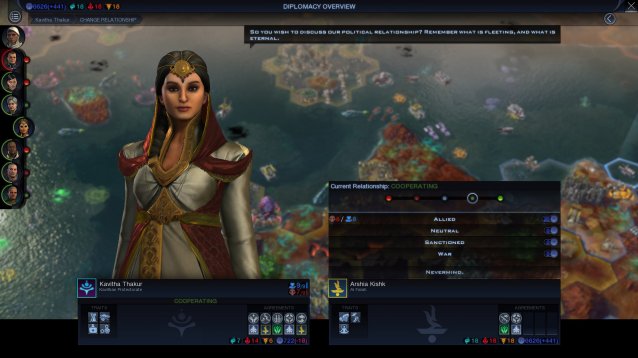
In the past, players were mostly left to guess as to why a ruler had suddenly turned on them or soured on their relationship. In Rising Tide, things are far more clear, as constant message updates from other leaders tell you if you’ve gained or lost favor with each turn, and why. Some civilizations value strong military, others will praise your production rates, others still respect how much science you are generating, and so on. Their opinion of you is now stripped down into two categories: Fear and Respect. These are visually represented in the Diplomacy menu as Red and Blue arrows, respectively. With each diplomacy update from another civilization leader, you will see an arrow go either up or down, indicating whether you’ve gained or lost Respect. Their Fear of you is determined by your civilization’s number of military units. You should balance Fear and Respect carefully. Relationships enforced predominantly through Fear are vulnerable to espionage and backstabbing. Those that lack a sufficient amount of Fear, however, will fall victim to the perception of their weakness and be subject to military attacks.
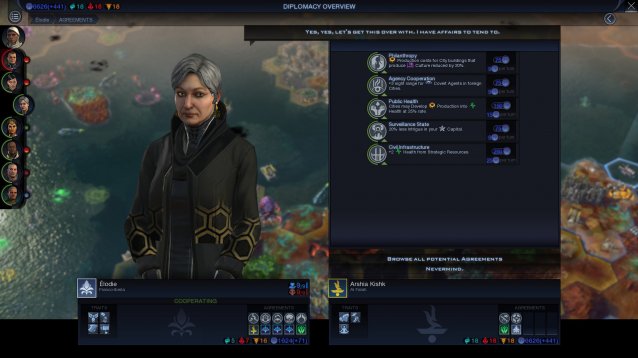
Diplomatic trading is far less flexible now. Resources can no longer be offered or exchanged as a part of a direct negotiation with other civilizations. They are now part of the regular trading system. Leaders of civilizations will now offer you set deals, or you can offer them one from a list of potential deals that can be made. Your trade activity will be noticed by other civilizations and may cause either a decrease or increase of their Respect for you.
As your relationship with other civilization fluctuates based on their Fear and Respect, different trading options will be available to you. During War status, two civilizations actively pursue combat and cannot trade either domestic trade routes or through diplomatic negotiation. A War Score, based on the performance of each faction, is used to determine spoils and losses at the war’s end. In a Sanctioned status, all trade is suspended. Neutral status opens up regular and diplomatic trade. If you are Cooperative, new deals will be available and they will be more effective. Borders and regular trade will also be open. An Alliance, the most positive relationship status, will guarantee allyship in war and more lucrative trading deals.
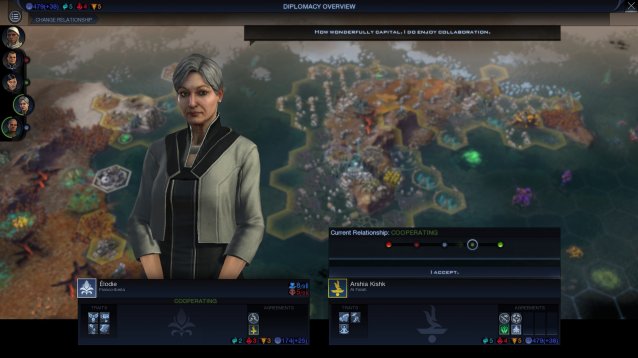
In the deals you make with other civilizations, the favor you’ve earned with them in exchange for bonuses to their faction is measured as a generated resource, like Energy. Diplomatic Capital, a social currency, can be spent like Energy in your Production menu. Units and buildings can be purchased. You can also offer it up in cooperative deals with other civilizations. Diplomatic Capital is also used to purchase Traits, which provide additional bonuses to a civilization.
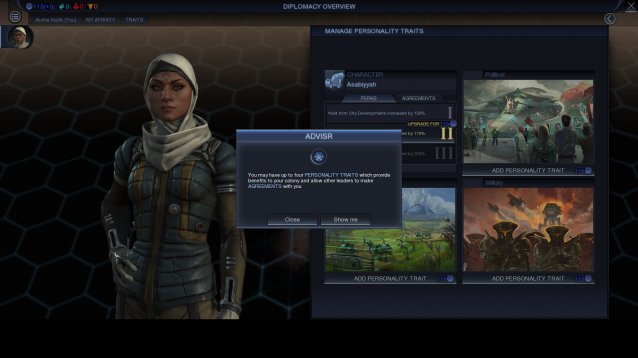
At the start of the game, your civilization leader will be assigned a Trait, which is static and cannot be changed. Traits give a faction certain bonuses that aid in the development of their civilization. Players can have a total of four, the other three of which are Domestic, Political & Military branches. They can be purchased with Domestic Capital. All can be upgraded for Domestic Capital, and the three accessory Traits can be changed for Domestic Capital as well.
In the Diplomacy screen with each leader, you will be able to see what Traits they have. This can help with anticipating what strategic moves or trading deals will be best received by them. These Traits are also available for trade via Diplomacy, with leaders receiving Domestic Capital in exchange.
There are still a lot of kinks to be worked out to perfect the Diplomacy system, but this latest overhaul with Rising Tide is at least a start. At the very least, it’s clear enough that you can actually factor alliances into your Civilization strategy. Remember to offer deals as well as take them, use criticism from other leaders to drive and improve the prosperity of your faction, and don’t approve deals that are too favorable to your rivals. You won’t be able to please all the leaders all the time, but with some shrewd management skills you can curry enough favor to give yourself the winning edge in Beyond Earth.




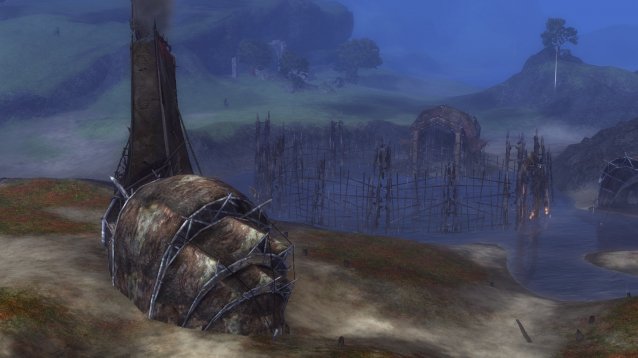 Guild Wars 2: How to Demonstrate Your Game Worlds Beauty
Guild Wars 2: How to Demonstrate Your Game Worlds Beauty The Witcher 3 Monster Guide: How to Easily Beat the Dragon Contract
The Witcher 3 Monster Guide: How to Easily Beat the Dragon Contract Killzone Shadow Fall Platinum Trophy Guide
Killzone Shadow Fall Platinum Trophy Guide How to get Assassin's Creed Unity Creed Points faster from Single Payer Campaign and Co-Op
How to get Assassin's Creed Unity Creed Points faster from Single Payer Campaign and Co-Op NBA 2K16 My Career Guide: Tips & Tricks to Turn My Player into a Superstar
NBA 2K16 My Career Guide: Tips & Tricks to Turn My Player into a Superstar